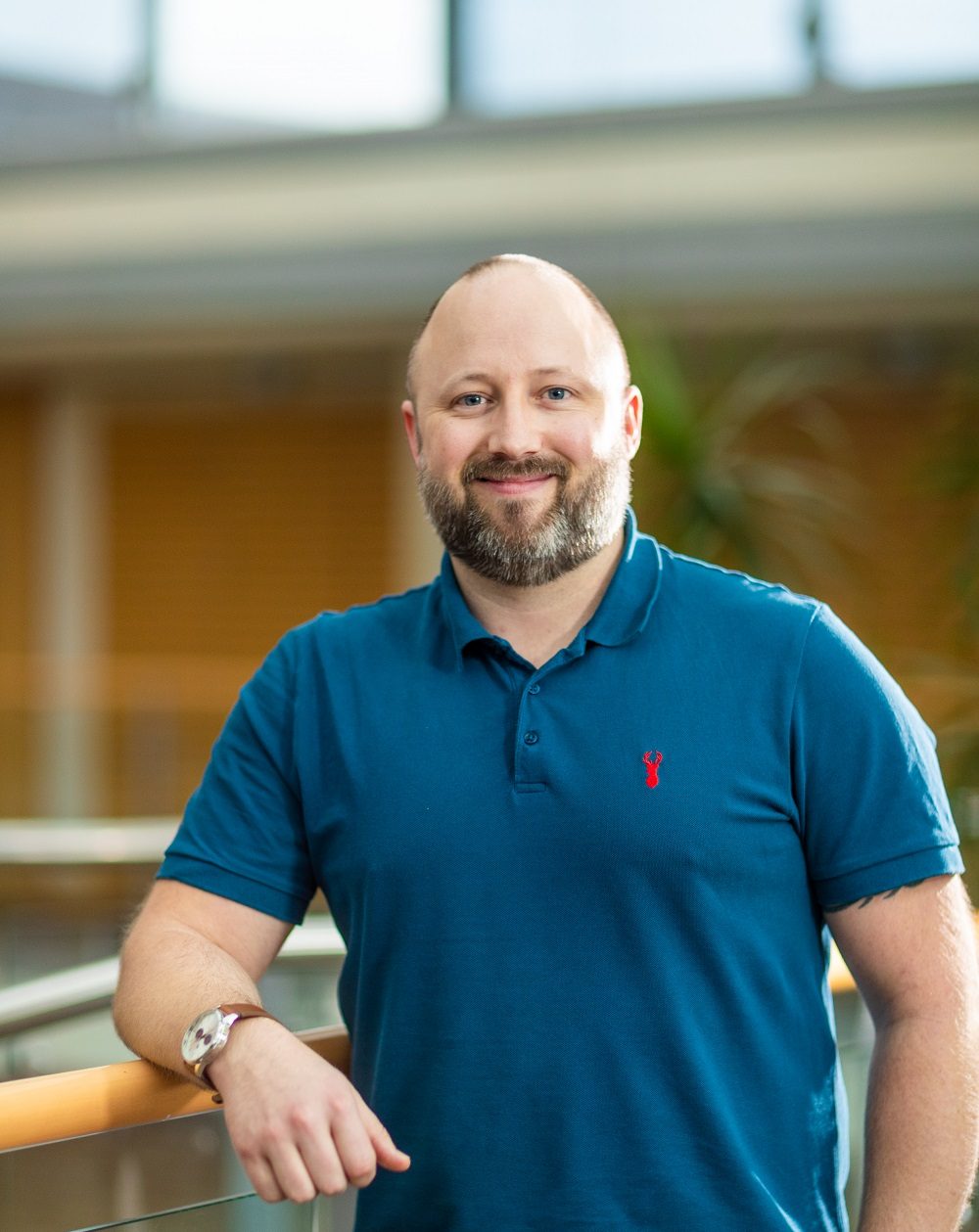
July 29, 2021, by Rob Ounsworth
Why does a chromosome have a coat?
Prestigious funding awards are helping Nottingham Research Fellow Dr Dan Booth reveal the link between cell defects and diseases such as cancer
My research is focused on cell division, more specifically – how cells equally divide their chromosomes. This work is important because errors in this process can result in some cells having extra chromosomes (aneuploidy), a feature of many cancers, birth defects and a contributor to miscarriage and fertility issues. Defects in chromosome structure or composition can lead to aneuploidy, however the molecular details surrounding these events are unclear.
I am particularly interested in the mitotic chromosome periphery (MCP) a sheath that coats the entire outer surface of all chromosomes, similar to a thick winter glove (the sheath) on a hand (the chromosome). This enigmatic ‘glove’ was discovered over 100 years ago, but has remained largely neglected. We (together with cell biologists Bill Earnshaw and Paola Vagnarelli) recently discovered which protein (Ki67) is responsible for assembly of the entire MCP compartment. This landmark finding has provided the first real opportunity to address the question – why does a chromosome have a coat?
An additional focus of the team is to develop advanced cell biology tools, in particular those relating to correlative light electron microscopy (CLEM). Over recent years we have made multiple novel discoveries of chromosome architecture that could not have happened without such techniques. Our aim is to also make these advanced imaging pipelines accessible to the wider scientific community.
Generous support
To support our research the team (and associated collaborators) have been fortunate to recently win numerous awards, including; a Royal Society Research Grant, Academy of Medical Sciences Springboard, BBSRC David Phillips Fellowship and Leverhulme Project Grant.
This generous support will allow multiple fundamental research strands to be pursued, connected by the goal of defining how aberrant cell behaviour can lead to disease.
For example, there are around 1000 new cases of cancer every day in the UK, and with an aging population this is predicted to increase over the next decade. Our expanding team are young, ambitious and thirsty to tackle these ‘health challenges of tomorrow’, by performing research that bridges discovery science with translational medicine.
This is an incredibly exciting period for the lab and for me personally. Here at the Biodisovery Institute, our work spans chromosome biology, cancer biology, reproductive biology, computational biology and biophysics, and brings together amazing colleagues with a shared sense of purpose and belief in the transformative power of research to shape the future of health.
More on Nottingham Research Fellowships
Daniel Booth completed a PhD (Liverpool) and post-doctoral studies (Edinburgh) before starting his own lab in Nottingham following the award of a Nottingham Research Fellowship in October 2019. The fellowship allowed him to establish his team at the University of Nottingham flagship Biodiscovery Institute, a £100m interdisciplinary hub of almost 1000 academics, researchers, students and clinicians.
No comments yet, fill out a comment to be the first

Leave a Reply